The following review was not supposed to happen. For this website is meant to be dormant, just now. The plan was to revive it later on. But life, as John Lennon sang – once memorably, now perhaps cliched – is what happens while making other plans.
And a burst of life unexpectedly produced the following. It is a rave review, which almost embarrasses me in its intensity. But such is life. — RB
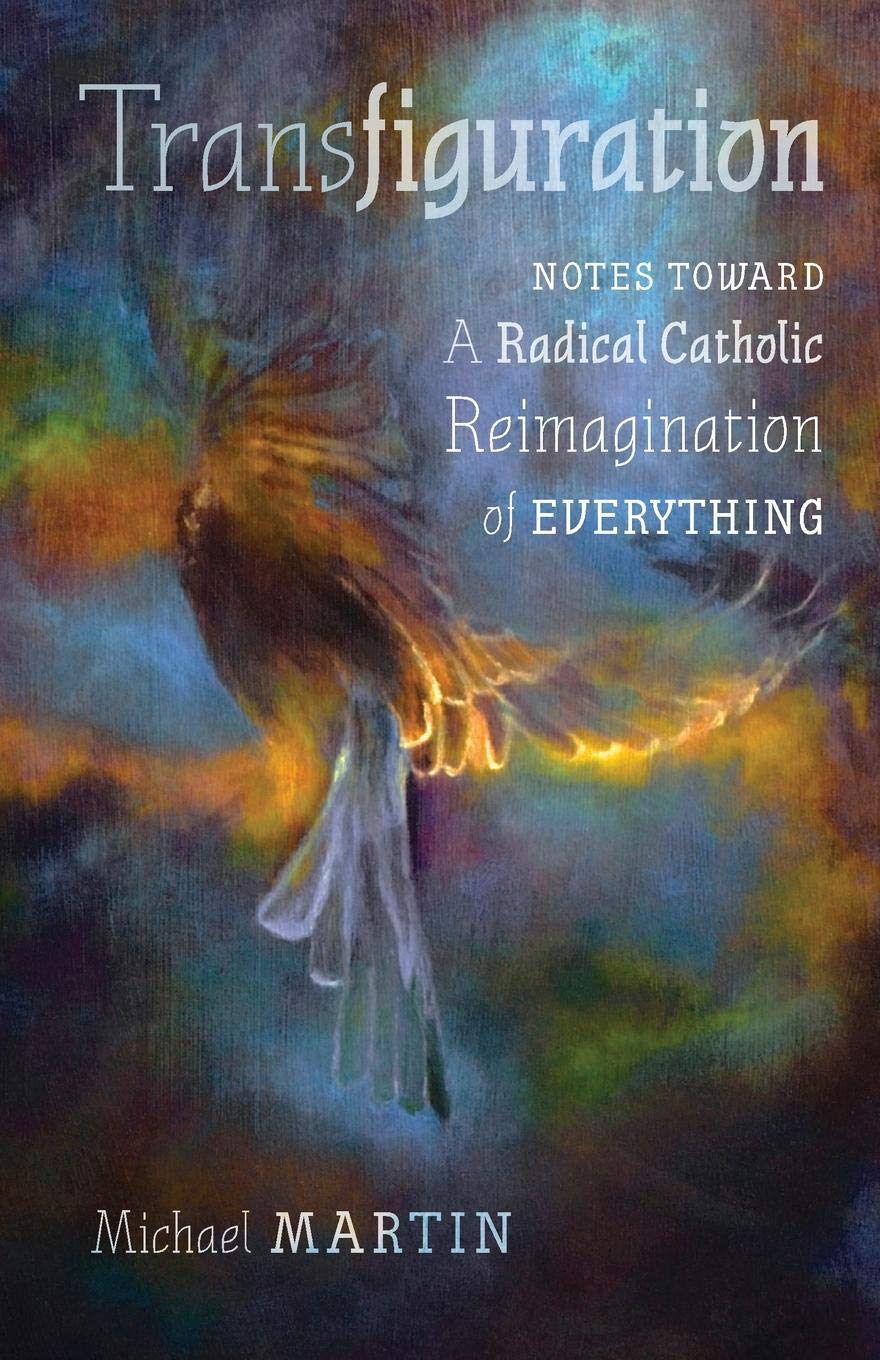
Over the last four centuries, the rise of rationalism and materialism has undermined Christian faith.
Such is a truism, a bromide, a weary mantra that educated Christians have repeated endlessly for generations.
And with what result?
Arguably, Christianity has only grown ever more materialistic, even whilst it nominally clings to the tenets of faith, even whilst it recycles the cliche – tired and true – of faith undermined.
Michael Martin sees the desperate need for something different. And his obvious years of urgent, passionate enquiry have yielded a glorious book – truly, filled with glory – Transfiguration: Notes toward a Radical Catholic Reimagination of Everything. And much of that glory resides in the fact there is absolutely nothing cliched about it.
Indeed, it is the very antithesis of cliches: a vibrant (re-)imaginative call to inspired thinking and action, across numerous fields, including science, education, economics, the arts, technology and more.
For Martin sees with startling freshness how much materialism – philosophic, scientific, technocratic, commercial – is not simply undermining Christian tenets. It is murdering our souls.
Just like it is murdering culture, creativity, art, the soil, the bees …
I said: “Michael Martin sees”. A better word could be FEELS. This book records a living heart suffering the murder all around him.
At times, this heart suffers, too, the kind of Catholicism that may produce sincere participation at Mass, yet all-too-easily yields to the same murderous utilitarianism the rest of the week.
Thus, there is sometimes impatience with contemporary Catholic culture here, both modern and traditional. I understand that, even while thinking that, at times, Martin is too impatient with good people who mean well.
Yet even if I am right, the reason, I suspect, is that his eye is set on higher horizons of human possibility than the vast majority of us and that his heart intuits remedies rarely found in the Catholic mainstream. Put differently: this author is ORIGINAL.
What his originality entails is not easily distilled in a short review like this. But his remedies involve a contemplative way of life that profoundly honours the liturgy, whilst remaining seriously concerned with how we LIVE our lives beyond the Mass.
Yet the contemplation envisaged here is not simply solitary prayer and meditation, crucial though that is. Martin also asks how we can contemplatively engage all aspects of the cosmos.
Can we prayerfully, reverently contemplate the phenomena we encounter – ‘be it a flower, an owl, a geode, the rising sun, or a piece of writing’ – Martin asks.
If not, he suggests, we had better start. Else the continuing descent into materialistic hell is all but guaranteed. Because materialistic hell is constructed on the abstract, reductionist programme of the Enlightenment that, as Martin has it, buffers us from Reality.
In a way, the book provides a tour of this hell of Enlightenment buffering, as it feeds into modern politics, economics, technology and more.
And, as a tour of hell it is disquieting – to say the least! – yet also sobering, salutary, awakening, because based on such keen observation. Martin obviously practices what he preaches: he prays not simply at Mass, he contemplates the cosmos.
What Martin is not saying, though, is that all this demands hobbit-like retreat from the world or abstinence from technology. Quite the opposite.
Thus, the author grieves not only the obvious horrors that concern many traditionalists such as myself – puberty blockers, pornography, transgenderism, but other horrors, too, hardly discussed enough on the Catholic ‘Right’. (And too often abandoned to the Catholic ‘Left’.)
For example: the immense poison of Big Agriculture or even the demonic agencies working through cyberspace and Artificial Intelligence. (And indeed, he does mean preternatural demons, quite, quite literally.)
Rather, it involves balancing soulless utilitarianism with soulful contemplation. It means, too, going to the ROOT of these things. For all this horror, poisoning the soil, poisoning children through puberty blockers, poisoning through pornography, are only symptoms of Enlightenment buffering from the Real.
That is, to say: the LIFE Christ brings us, in the Eucharist above all, but also in all that is truly wholesome in nature (or Sophianic).
Sophianic: it may help to say that Martin, a Byzantine Catholic, draws on unusual insights beyond the mainstream of (Western) Catholicism, including the Russian Sophiologists, the Phenomenologists, Goethe, Boehme, Rudolf Steiner and Valentin Tomberg. This is not to say he endorses such figures wholesale, but rather welcomes profound insight, wherever it is found.
I do not endorse these figures wholesale either. I recognise this list poses, sometimes at least, real problems for Orthodoxy.
And Orthodoxy is crucial.
But Christianity has always been about inculturation. From antiquity, it has continuously co-existed with non-Christian orientations and has sought to honour, even adopt, what is best in them.
Valentin Tomberg, I might add, believed Hermeticism needed to be baptised, rather than crushed. Martin sees this too, as do I. And his Transfiguration is in many respects an extension of the critical project Tomberg initiated. (As an aside, I see this baptism as the only route forward with the immense problem posed by today’s New Age movement).
Some may think Martin occasionally goes too far. This, plus the aforementioned impatience I experience in the book, may alienate certain readers.
This would be a great pity, if true.
Because, dear Lector, we live in a time of great darkness, including darkness in the Church.
I said of an earlier book by Martin – reviewed here – that it shone light in the darkness.
This book, for me, shines even greater light. And I have not even mentioned how poetically beautiful his writing his . . .
I do not always agree with Martin, but I am more moved than I can possibly say.
This book is very important.

Buying Books at Amazon Through These Links Gives Us a Commission. This Supports Our Apostolate. Thank You if You Can Help Us Like This!

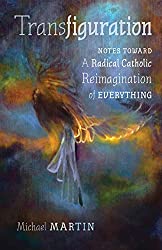
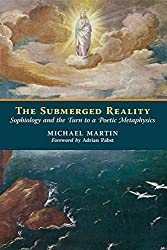
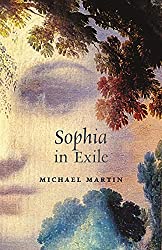
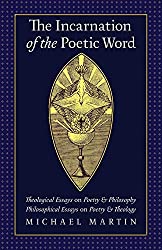
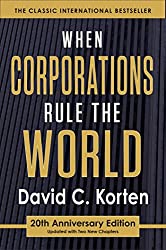
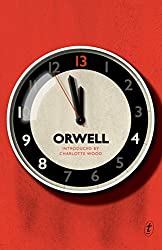
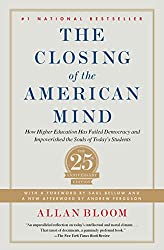
Comments
comments are currently closed
One response to “Michael Martin’s Transfiguration (Review)”
A good review, and an interesting video, where you bring forth your criticism of the New Age very clearly and distinctly. I appreciate that, and even agree with it to an extent. What I don’t quite understand is the harsh dualism in your argument. Either love is impersonal or it is personal. And you clearly choose and go for the personalizing side, which of course you should.
But in the name of the Chrstian and hermetic merging of the opposites, don’t you think it is possible that love could be both an highly impersonal and a deeply personal force at once? That there may be a certain level of detachment – from illusions, from sentimentality, from the ways and waviness of the world, etc., a certain level of cosmological elevation beyond human concerns – even to the bost passionately involved and deeply personalized love flowing from the heart of Jesus Christ?
And that the seeming aloofness of Eckhart Tolle and his likes, and their somewhat overdetached concepts and aspirations, might not be interely untrue, indeed even integratable into a much more profound understanding of the nature of love?